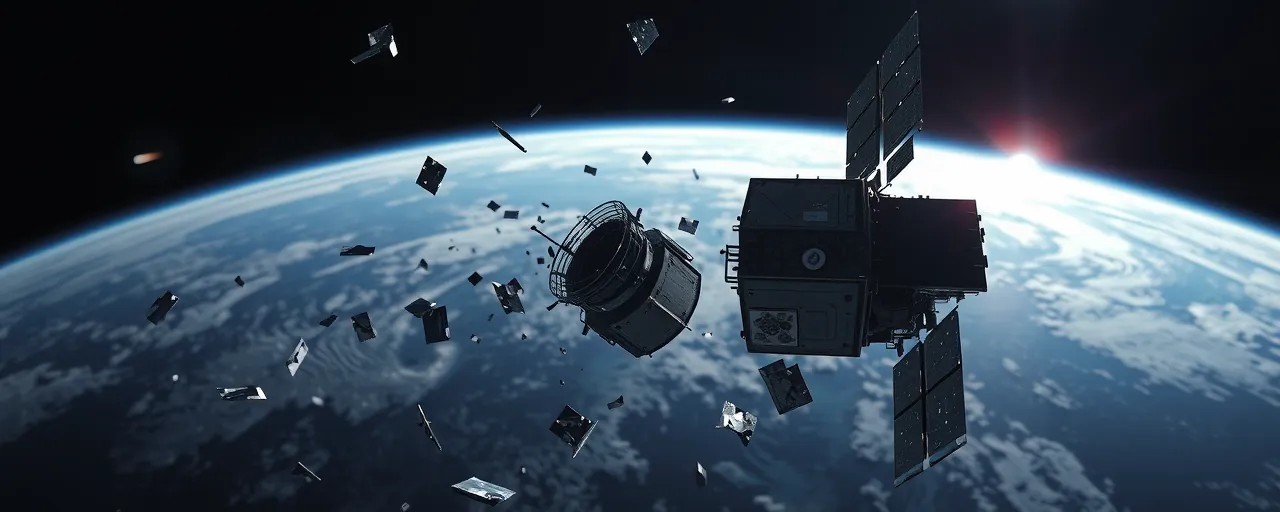A Sky Under Siege
Humanity has long gazed at the stars, dreaming of discovery and connection. Now, those dreams face a dire threat as the Department of Defense, led by voices like General Stephen Whiting at the Chicago Council on Global Affairs, pushes to transform space into a battlefield. This vision, driven by commercial technology and military ambition, endangers our planet’s future.
Whiting highlights Russia and China’s anti-satellite tools, from lasers to potential nuclear weapons, as urgent dangers. He praises the Space Force and private sector innovations, like those that helped Ukraine coordinate drones in 2022, as essential for security. Yet this perspective assumes war in space is unavoidable, a dangerous mindset that ignores the power of global cooperation to keep orbits peaceful.
Why should we risk a world where satellites, vital for navigation, finance, and emergency services, become targets? The Pentagon’s reliance on commercial satellites, while cutting-edge, exposes civilian systems to cyberattacks and debris from tests like Russia’s 2021 anti-satellite strike, which scattered 1,500 fragments. This issue transcends militaries; it affects everyone.
The human toll of militarizing space is staggering. Last year, over 10,000 satellite interference incidents disrupted air travel, energy grids, and more. If this trend continues, everyday systems, from food supply chains to 911 services, will falter. We cannot let ambition in orbit unravel life on Earth.
Voices advocating for peace, including Democratic foreign policy experts, propose a wiser path: diplomacy and arms control, inspired by the UN’s efforts to prevent an orbital arms race. Their vision, rooted in collaboration, challenges the idea that space must be a frontier of conflict.
The Perils of Profit in Orbit
Commercial space technology offers remarkable tools, as seen in Ukraine’s 2022 use of satellite internet to outmaneuver Russian forces. The Pentagon’s 2024 Commercial Space Integration Strategy taps private firms, with over half of U.S. military communications now relying on their networks. But this dependence creates risks that adversaries can exploit through jamming or hacking.
Russia’s 2022 cyberattack on Viasat disrupted European infrastructure, while GPS spoofing endangers ships and planes. The Pentagon’s response, escalating with projects like the $175 billion Golden Dome missile defense, fuels tensions rather than easing them. Why invest in weapons that provoke conflict when we could prioritize resilient, shared systems?
History offers warnings. The Cold War space race, with its nuclear interceptors and Reagan-era defense plans, bred distrust and near-disasters. Today’s commercial surge, while innovative, could repeat those errors without regulation. Private companies, chasing contracts, often prioritize profit over the stability of our shared orbits.
The Pentagon’s industry ties, though efficient, lack oversight. The Space Force’s 2025 AI and data plans, alongside partnerships with 900 firms, entwine civilian tech in military risks. Without global rules, these systems invite attacks, undermining the very security they aim to protect.
Choosing Cooperation Over Chaos
A peaceful space is within reach. The 1967 Outer Space Treaty, embraced by over 100 nations, bans weapons of mass destruction in orbit. Democratic experts build on this, urging verifiable bans on debris-creating anti-satellite tests. Such steps, backed by the UN, could protect our satellites from reckless destruction.
Working with allies like Canada and the UK is crucial, but we must also engage rivals. Talks with China and Russia, as arms control advocates suggest, could set clear rules for space. Transparency, as outlined in Obama’s 2010 National Space Policy, would prevent missteps and foster trust. Why court disaster when dialogue offers hope?
Some dismiss diplomacy, citing Russia’s UN vetoes and China’s hesitance. Yet their resistance proves the need for persistent effort. An arms race in space would harm us all, with debris and disruptions sparing no one. Space demands collective care, not competition.
Protecting Our Cosmic Legacy
Space shapes our world, powering everything from disaster relief to daily commutes. Yet the Pentagon’s focus, echoed by Whiting, chooses conflict over caution. We cannot let the stars become a warzone, where cyberattacks and debris threaten our way of life.
Advocates for a peaceful orbit offer a clear plan: arms control, global norms, and resilient systems. These ideas, grounded in decades of diplomacy, uphold space as a place of unity. Will we embrace collaboration, or let fear reshape our skies?
The choice lies with us. By rejecting weapons and prioritizing partnership, we can safeguard Earth and keep space a beacon of hope. Let’s demand a future where the cosmos unites, not divides.
